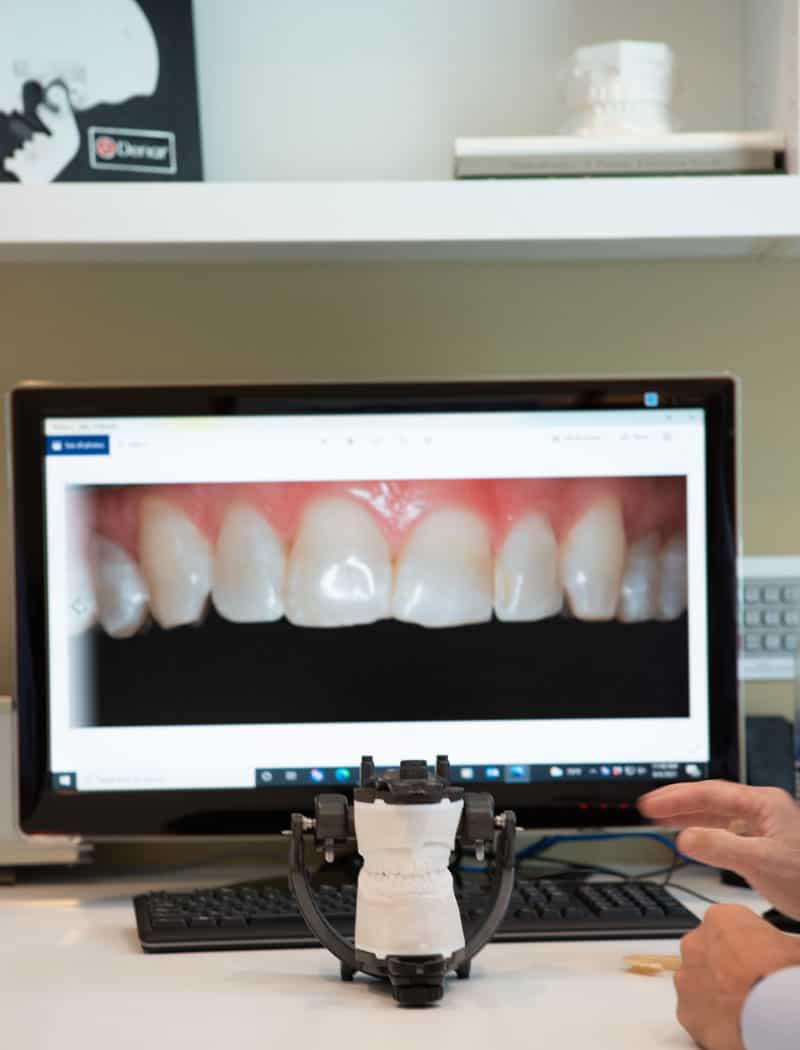
TMJ/TMD Treatment
in Rocky Mount
Bite Analysis & Adjustment
Our doctors have extensive training and experience in evaluating and improving the harmony of a patient’s bite. A properly aligned bite is an important foundation for a healthy mouth. Aligned doesn’t necessarily mean straight. In dentistry, the way your teeth and jaws relate in function is referred to as your occlusion. In a healthy bite relationship, your teeth should fit comfortably together while the lower jaw is evenly centered in the joints on both sides of your skull. When you bite down, as many of your back teeth as possible should touch with an even force on the flat surfaces and not on the inclined ones. This allows the force of your bite to be directed in the least destructive direction to the areas that are most resistant to stress. An additional requirement for a healthy bite is that your back teeth should come apart when your front teeth work against each other. This relationship helps protect the teeth by preventing excessive forces from being applied.
There are many ways that a bite can be imperfect. When teeth do not meet evenly, with only a few teeth making contact, the jaw is out of alignment. You may make an unconscious effort to correct this by moving your jaw slightly out of socket to make your teeth fit together better. This can cause muscle stress, fatigue and over time, may even cause the joint itself to deteriorate.
For some patients, the answer to improving their bite relationship is a simple modification called a bite adjustment or occlusal equilibration. They can be smoothed or reshaped to enable the teeth to meet more evenly and soundly thus improving the bite relationship and the overall stability and the overall health of the jaw.